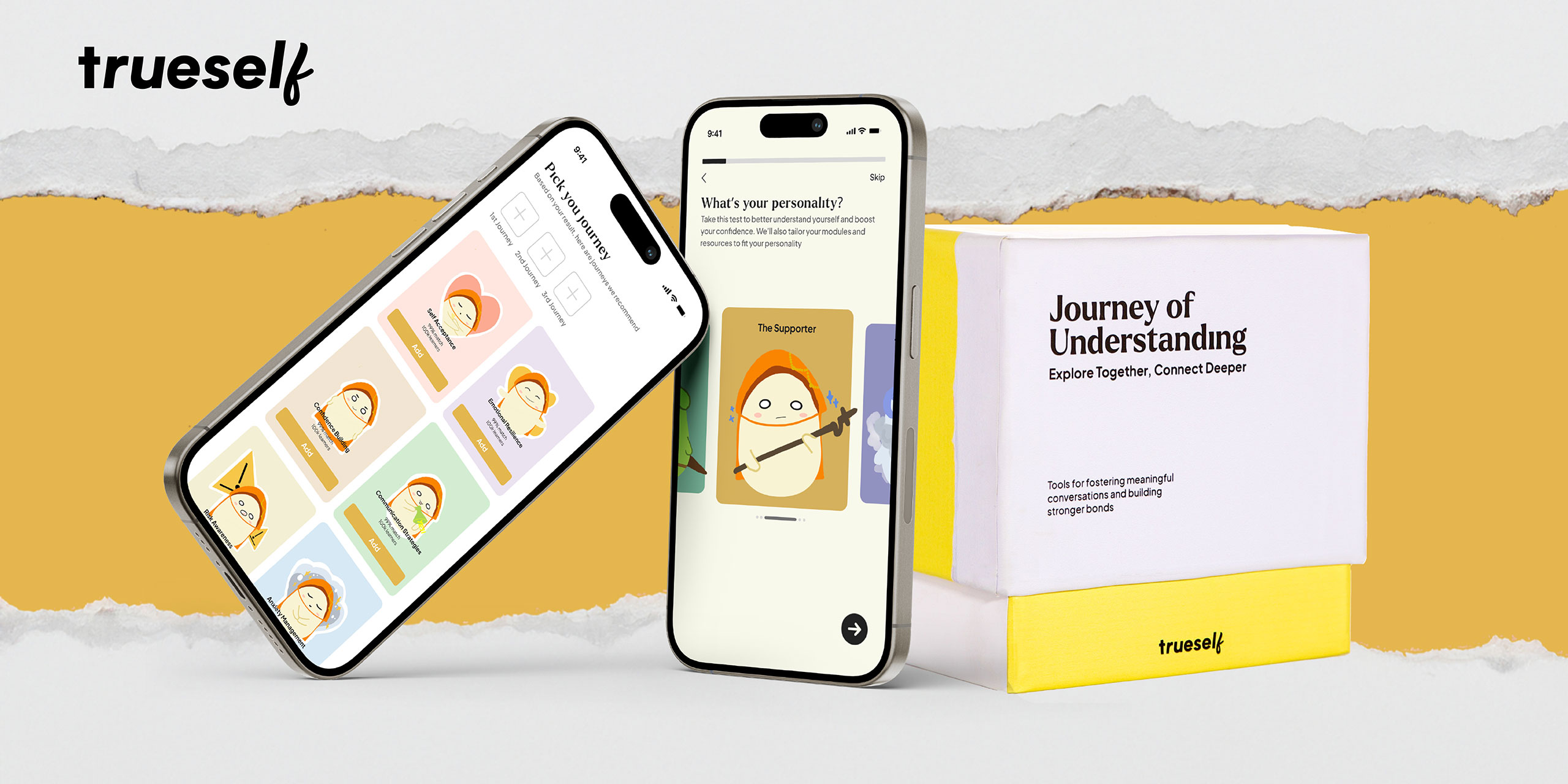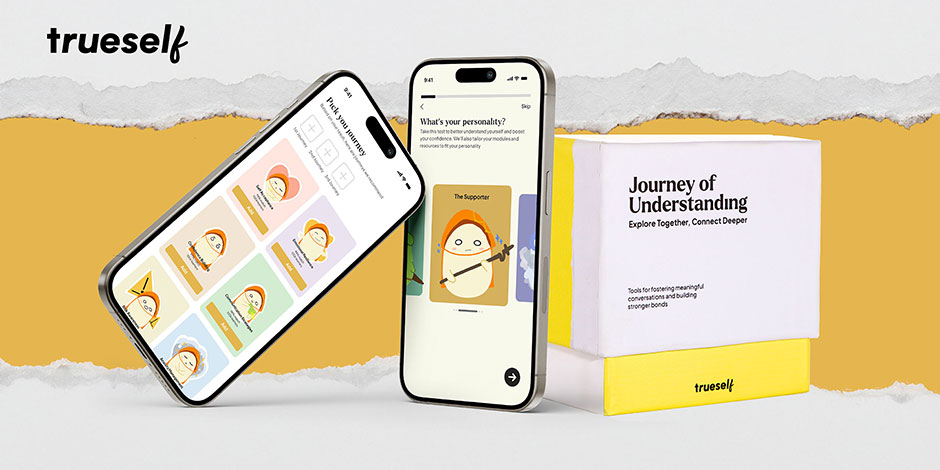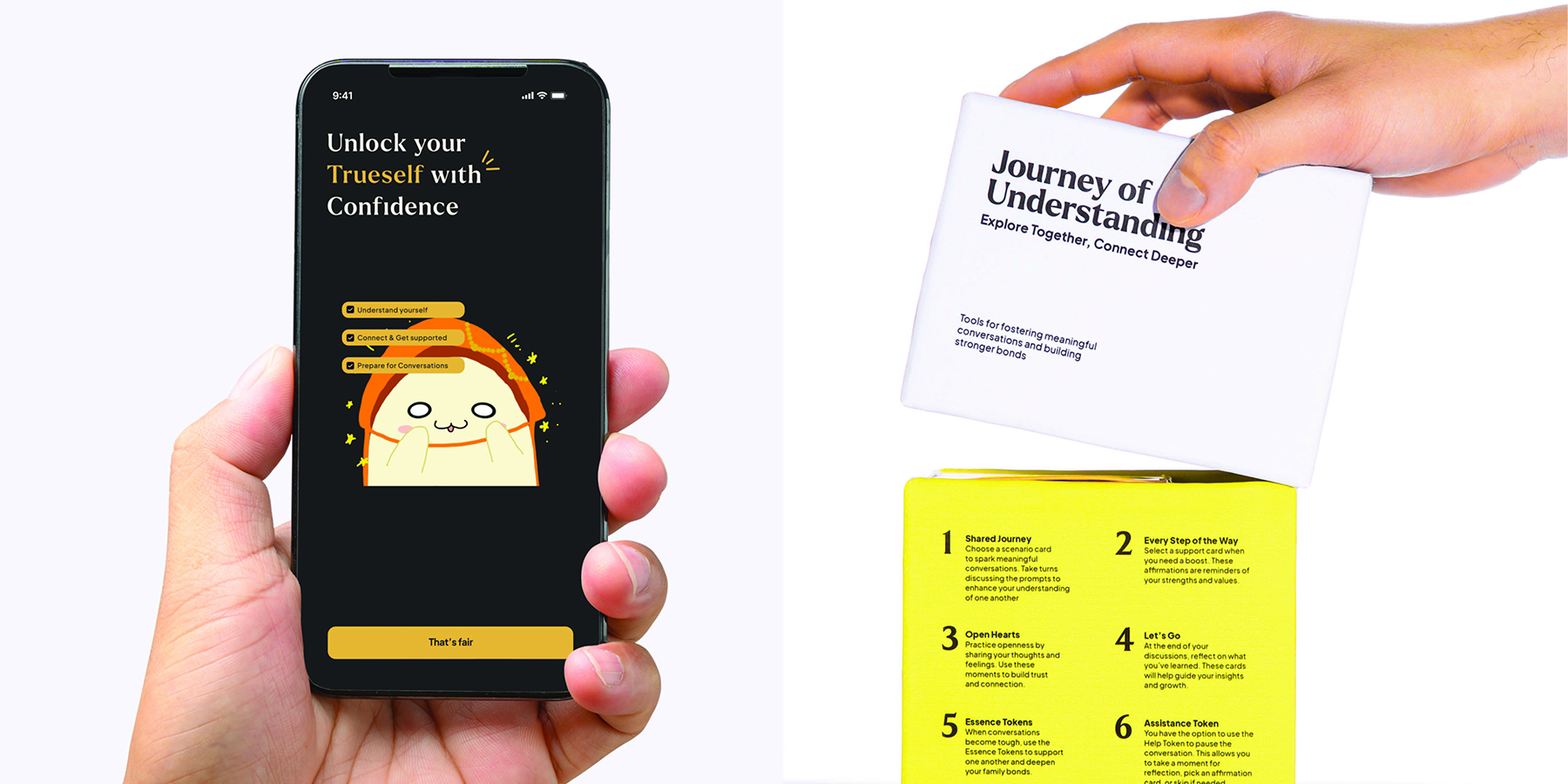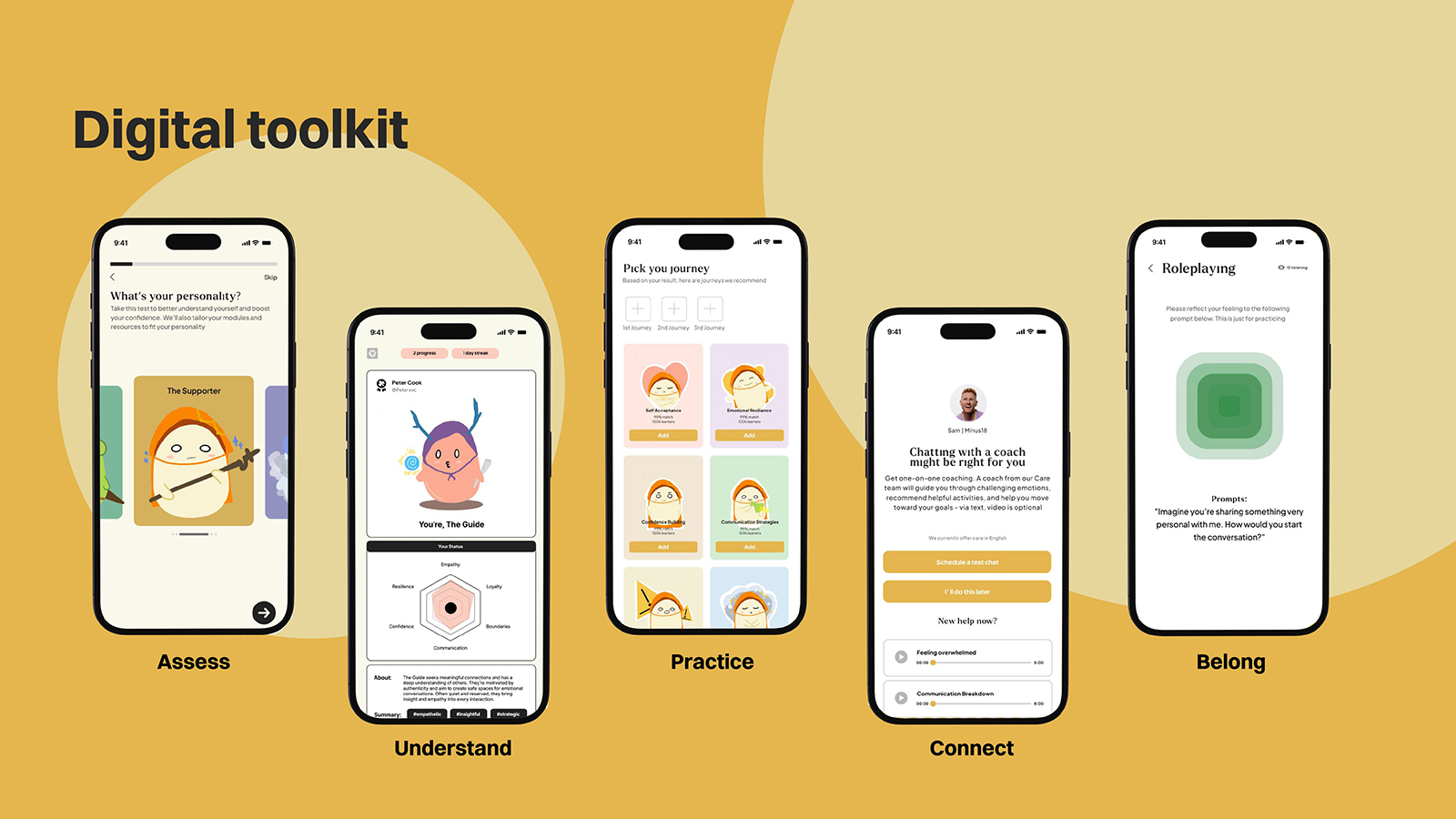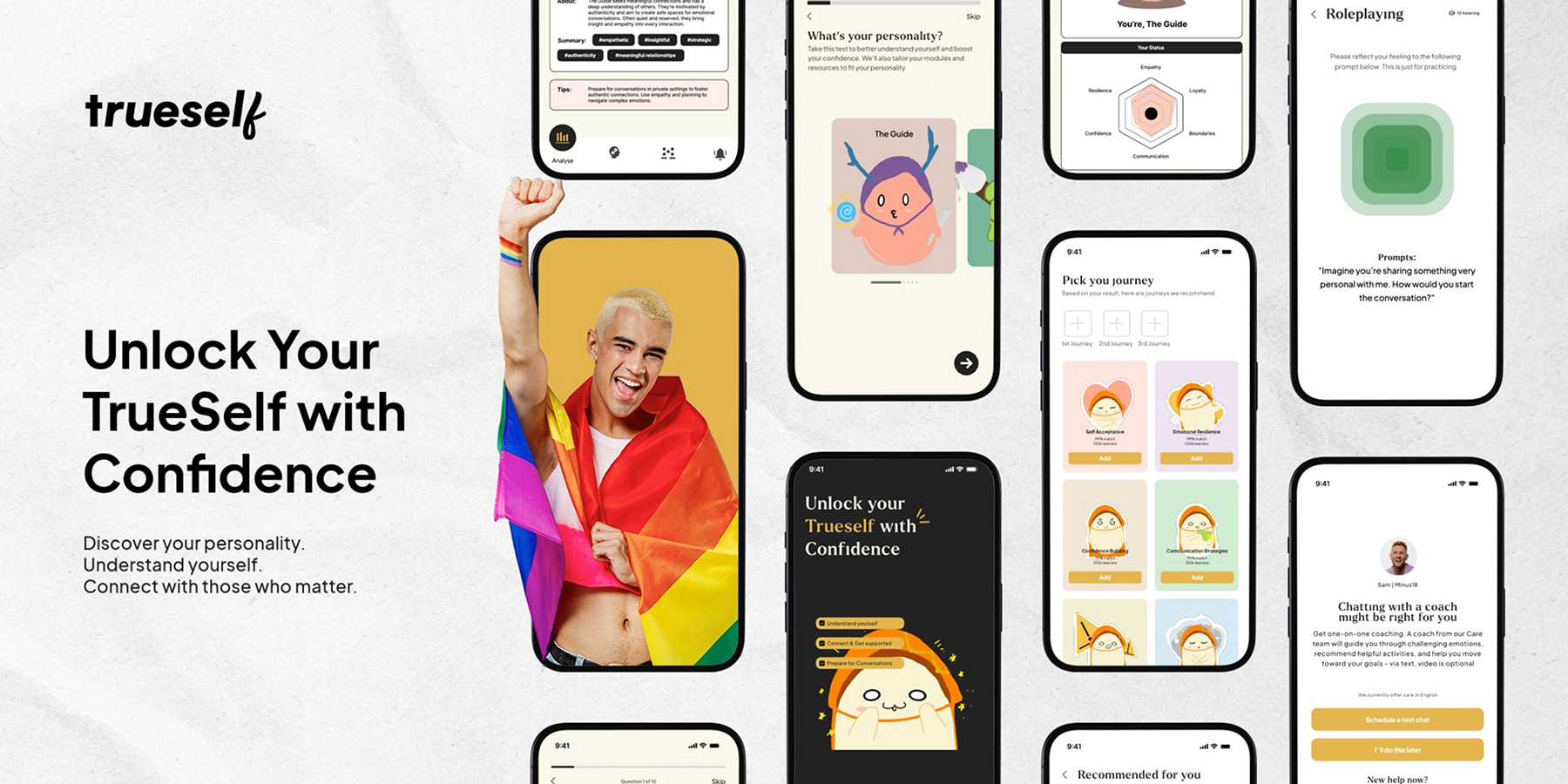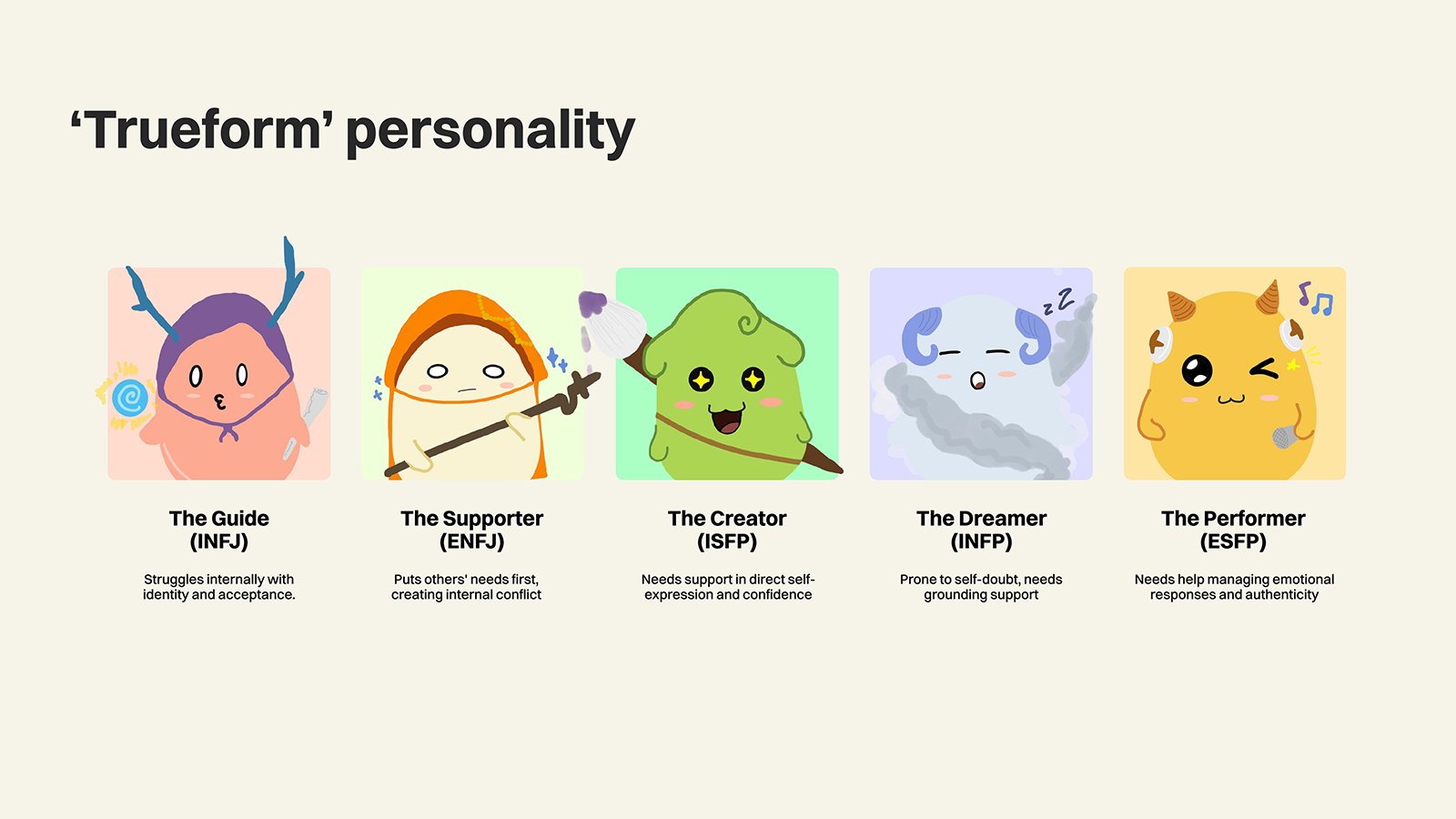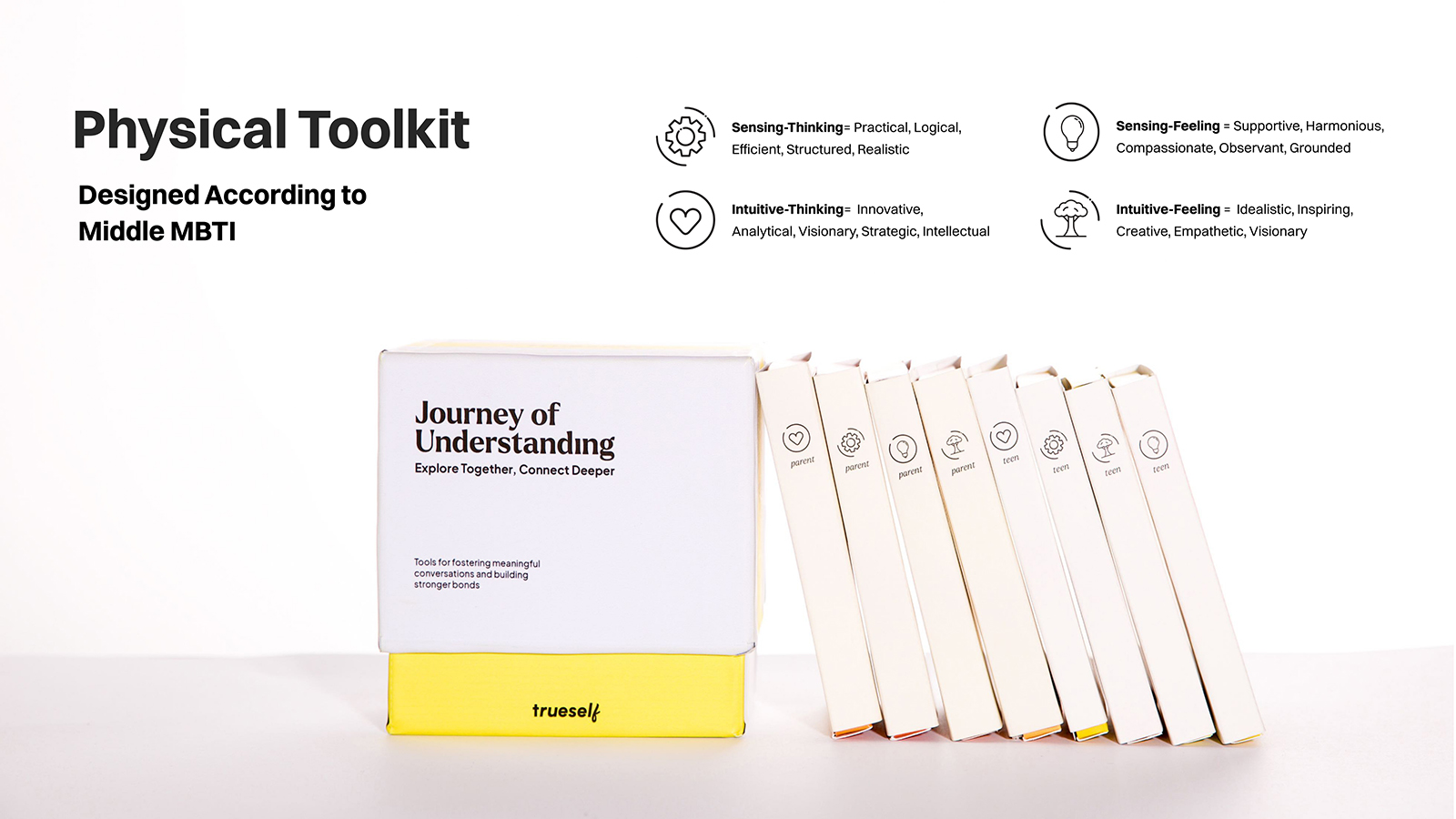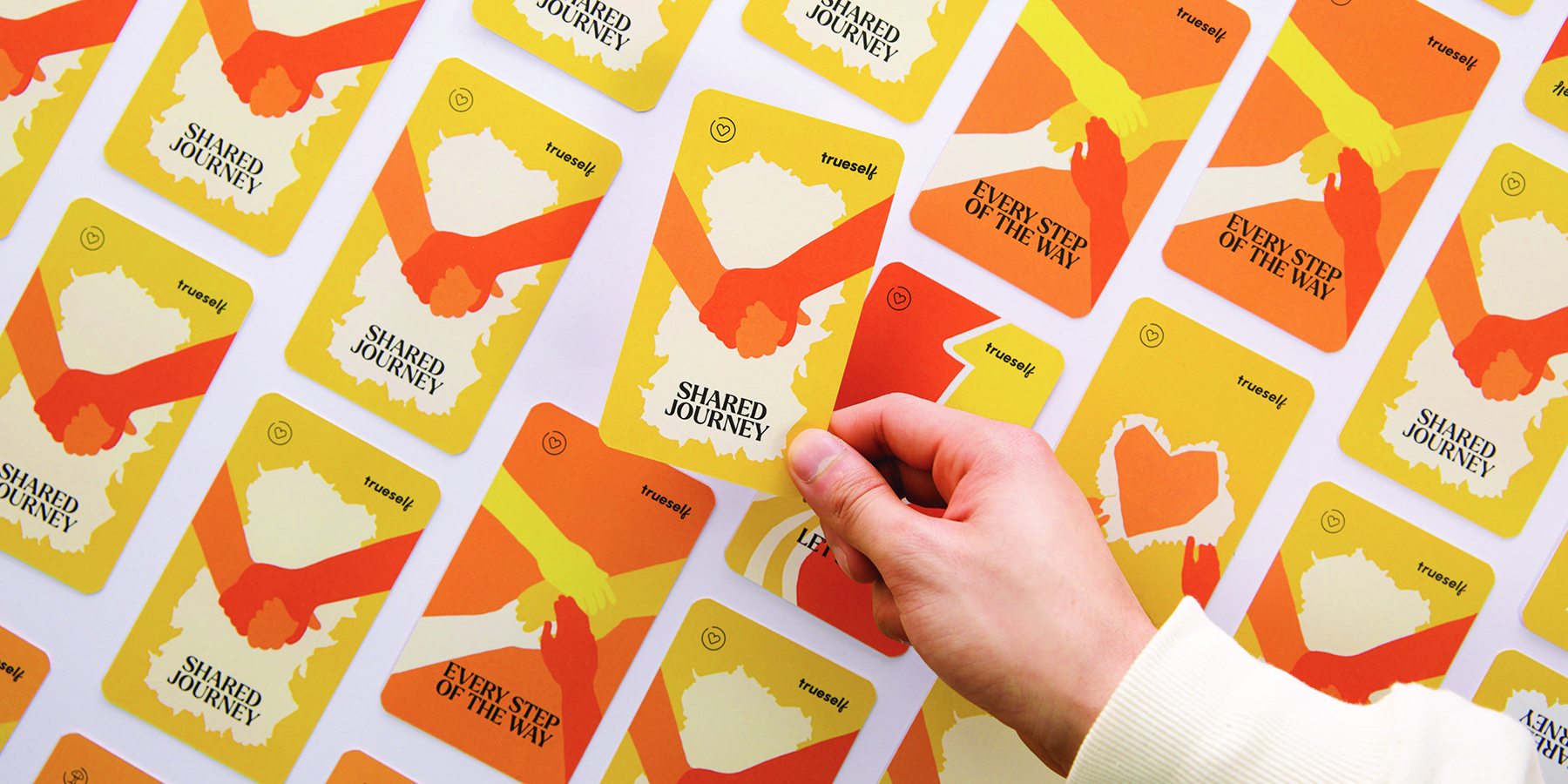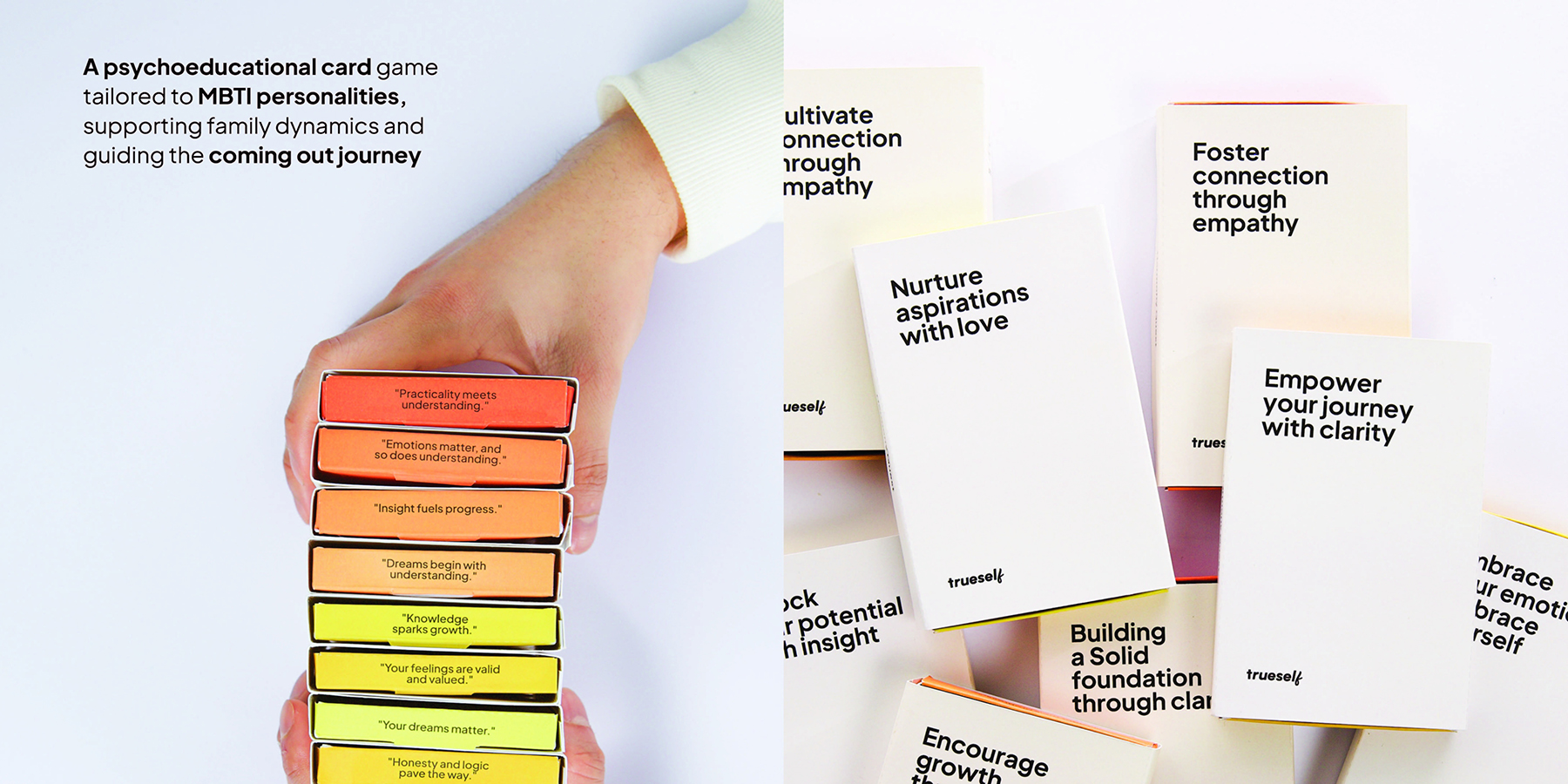The TrueSelf project followed a human-centred, trauma-informed design methodology guided by principles of social innovation. The process began with desktop research on LGBTQIA+ youth mental health, trauma theory, and family psychology. This was followed by qualitative interviews with psychologists, community support workers, and individuals who had experienced challenging coming-out journeys.
Insights gathered were synthesised into a journey map of emotional risks and touchpoints. From there, four key communication personality profiles (ST, SF, NT, NF) based on MBTI traits were identified to help personalise the experience. Co-design sessions with students, counsellors, and parents helped develop prototypes of conversation prompts, emotional support tools, and pacing mechanics.
The result is a physical and digital toolkit containing: 1) Scenario prompts and roleplaying cards tailored by personality 2) Joint reflection activities 3) Support cards for affirmation 4) Truth cards to gently support readiness to share 5) Help and Care tokens to manage emotional intensity Each element was tested in small peer feedback sessions for tone, clarity, and emotional impact. Final iterations were refined with input from trauma-aware professionals to ensure psychological safety.

